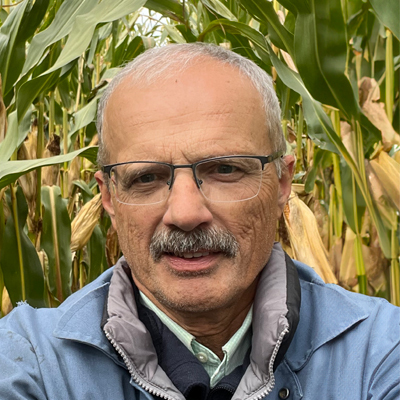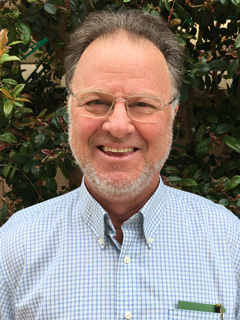Presentations
W1
Nutrient Management
Wed, Dec 14, 2022
1:00pm to 1:50pm
W11
Nutrient Management
Wed, Dec 14, 2022
11:00am to 11:50am
Research Prioritization for Robust U.S. Agriculture and Global Food Security: How Would You Invest?
Although U.S. Agriculture is the foundation of human food supply in terms of progress towards environmental sustainability and total production of calories, protein, and vegetable oil, major improvements are required within 28 years (2050) to deal with population growth, dietary shifts, and climate change. Crop yields must rise faster than ever while negative environmental impacts must fall by half. Assuming explicit 2050 goals of a 50% increase in crop yields on existing crop land and a 50% improvement in efficiencies for N, water and energy in US agriculture (crops and livestock), what kinds of research and technology development would you invest in using taxpayer dollars funding USDA, Land Grant Universities, other research and education institutions” to meet these challenges. Why does it matter?
Speakers

Tony Vyn
Dr. Tony J. Vyn is a recently retired professor from the Agronomy Department at Purdue University. Officially, his title is the “Wallace Emeritus Professor of Crop Sciences” because he held a chaired faculty position as the Henry A. Wallace Chair in Crop Sciences from 2018 to his retirement in December, 2023. Unofficially, he is a part-time cash crop farmer in Ontario and Indiana. Tony grew up on a hog and cash crop farm near Ridgetown in Southwestern Ontario, Canada. He earned his degrees from the University of Guelph, (in Guelph, Ontario) after studying biology for 2 years at Trinity Christian College in Chicago. He was a faculty member in the Crop Science Department at Guelph from 1987 until he joined the Agronomy Department faculty at Purdue University in 1998. During his 25-year career at Purdue, he and his research team members studied the physiology of crop (primarily corn) responses to tillage, rotations, nutrient rate/placement/timing, abiotic stress factors, and plant populations with modern and era hybrids. He loved to find out when and how a plant change to management occurred so that he could better explain any final yield responses. Tony served as Co-Chair of the Indiana Crop Adviser Conference from 2003 to 2022. Dr. Vyn and his wife are blessed with 4 children who live with their respective families in the USA or Canada.

Ken Cassman
Currently Emeritus Professor of Agronomy, University of Nebraska, and agricultural consultant. Over a 40-yr career, Ken’s research has focused on ensuring local to global food security while conserving natural resources and protecting the environment. He has worked on many of the world’s major cropping systems—from rice-based systems in the tropics of Asia and South America, to maize-soybean systems in the US, Brazil, and Argentina, and high-value irrigated crops in California, Tasmania, Peru, and Egypt. He currently works at the intersection of intensive agriculture and environmental advocacy to improve yields, profit, soils, and environmental performance. Dr. Cassman led development of the Global Yield Gap Atlas (www.yieldgap.org), a map-based web platform to estimate exploitable gaps in yield and water productivity of major food crops. He co-authored Crop Ecology, a seminal upper-division/graduate school textbook, served as inaugural Editor-in-Chief of the Global Food Security journal, and was a member of the US-EPA Science Advisory Committee on Integrated Nitrogen Management. In 2017, he received the Bertebos Prize from the Swedish Royal Academy of Agriculture and Forestry in recognition of his contributions to agricultural science. Dr. Cassman holds a Ph.D. in Agronomy and Soil Science from the University of Hawaii.

